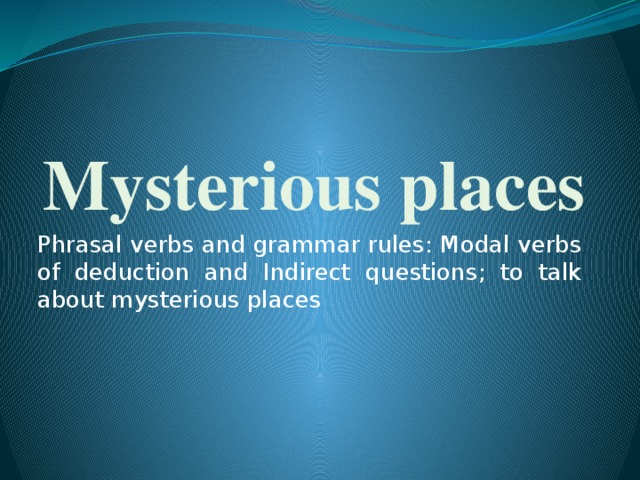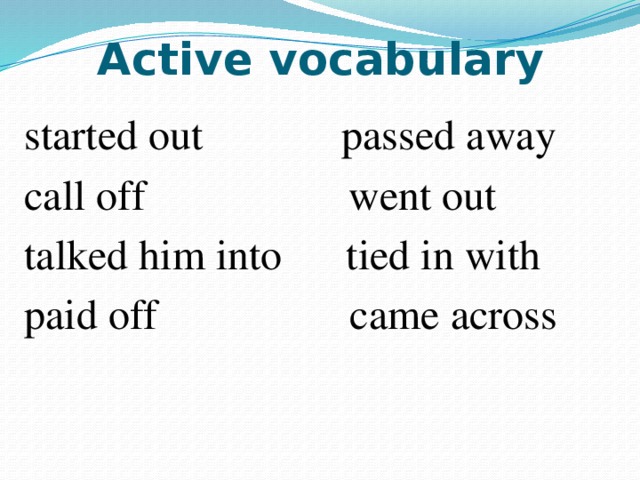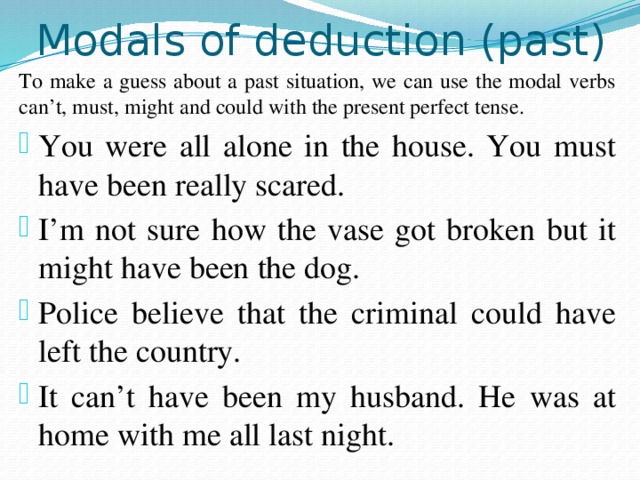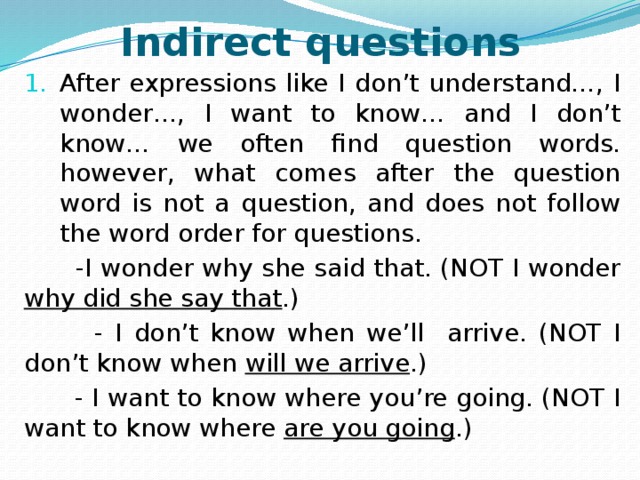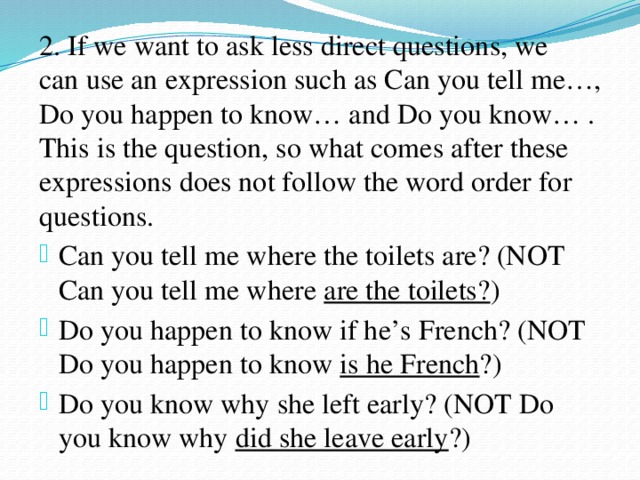Урок "Мистические местности" предназначен для учащихся 10 классов. To make a guess about a past situation, we can use the modal verbs can't, must, might and could with the present perfect tense. Modals of deduction (past).
-You were all alone in the house. You must have been really scared.
- I'm not sure how the vase got broken but it might have been the dog.
- Police believe that the criminal could have left the country.
- It can't have been my husband. he was at home with me all last night.
Inderect questions
Afterexpressions like I don't understand., I wonder., I want to know. and I don't know. we often find question words.
